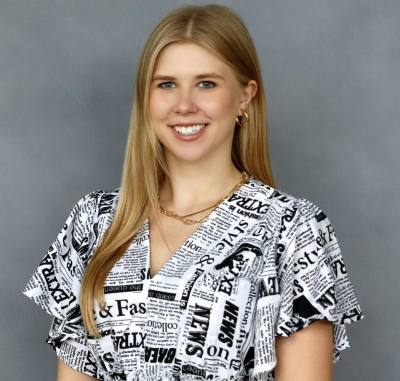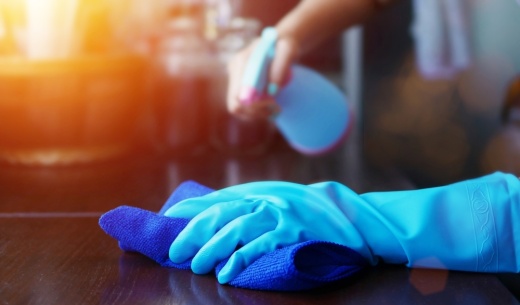How has the job of a custodian changed during the pandemic?
McCord: CISD custodians have always taken their job of providing clean and sanitary campuses seriously. Our custodians have been flexible. [They] worked hard, and they always have a great attitude. They’ve had a great attitude as they’ve adapted to the ever-changing expectations that the COVID[-19] threat has thrown at us. More specifically, being a custodian over the last 18 months has really required [them] to devote more attention to specific areas and to respond quickly and clean areas where someone ill may have occupied them.
How did the district support CISD custodians?
Schroeder: When the call came, it was, “What do we need?” Our [chief financial officer], Darrin Rice, ordered us the supplies we needed. Superintendent Curtis Null committed us to [electrostatic misting] every campus in addition to our already clean protocols that we had in place. And we bought vehicles. We bought equipment. Teachers wanted spray bottles in their classrooms, so we added spray bottles to their classrooms so they could clean [them] between class dismissals or changes. It is definitely a team effort.
How have cleaning processes changed since the pandemic began?
McCord: We were able to obtain e-misting equipment and also the touchless water fountains very early in the pandemic, and we were able to procure them just a little bit ahead of when everyone else realized they needed them.
Schroeder: We actually started e-misting several years back. We started before the pandemic but not for COVID[-19] reasons. We were on the bandwagon with it about seven years ago, and we started because of staph infections. We just grew that program enormously. ... We went from e-misting our athletic spaces to e-misting every classroom, every day when the pandemic hit.
Were more custodians hired at CISD? Was it difficult to find workers?
Schroeder: We hired teams [to conduct] e-misting. And that’s what their whole job was. They started from the time of dismissal until about 12:30 a.m.-1 a.m. That was their primary job, and that was the only thing they were responsible for. They went to every campus and e-misted every campus, every classroom, every day.
McCord: We worked hard throughout the entire time. Once COVID started, [we did] numerous job fairs, and working with our human resources department, we were able to actually expand our number of workers and improve upon our population and number of workers. There is no finish line. In Montgomery County and the country in general, there is tremendous competition for workers at this time.
Schroeder: It’s one thing for our board to help us with the salary, but during the pandemic, our board supported our employees all the way through. In those times when our employees couldn’t come to work or school shut down, our employees still got paid. That’s a big [reason] we kept so many employees.





